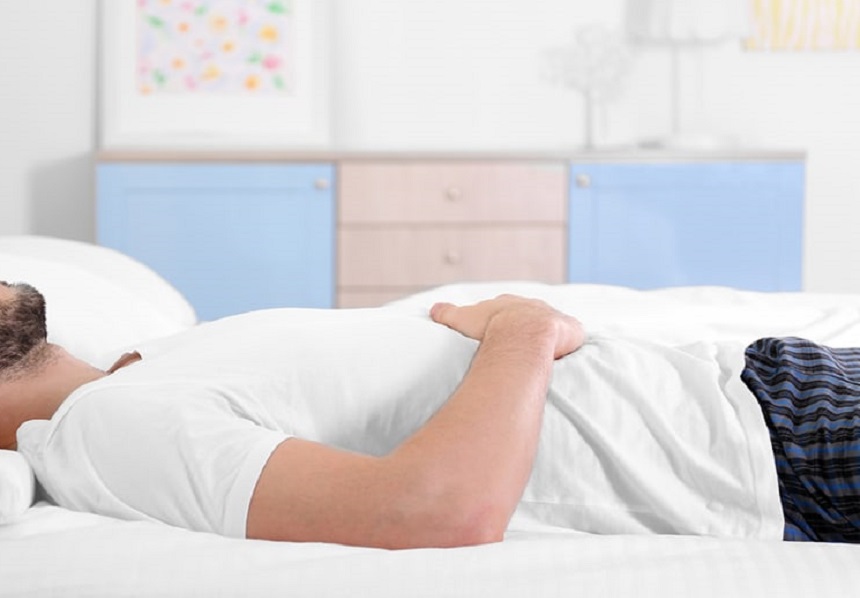
Sleep Longer Tips for Overactive Bladder Overactive bladder, Bladder, Urinary incontinence
Understanding Prolapsed Bladder. A prolapsed bladder, also known as cystocele, occurs when the bladder drops down into the vagina due to weakened or stretched pelvic floor muscles and ligaments. This condition is commonly caused by pregnancy, childbirth, menopause, and heavy lifting.

SeniorFitness 1 Association for Energetic Seniors!
Causes and Risk Factors Symptoms and Impact on Sleep Preparing Your Sleeping Environment 1. Investing in Supportive Bedding 2. Creating a Relaxing Atmosphere 3. Bedroom Organization 4. Bedtime Rituals 5. Supportive Sleepwear Optimal Sleeping Positions 1. Back Sleeping Position 2. Side Sleeping Position 3. Stomach Sleeping Position 4.

What Is a Prolapsed Bladder, the Symptoms and How Do I Treat It?
Discover sleeping positions and strategies to help manage discomfort and promote better sleep with this condition here. How to sleep with a prolapsed bladder? Skip to content

Evening Yoga For Prolapse in 2021 Bladder exercises, Bladder prolapse, Pelvic floor exercises
How To Sleep With A Prolapsed Bladder? Dominic Johnson November 22, 2023 0 Views 0 0 A prolapsed bladder, or cystocele, can make finding a comfortable sleep position challenging. To sleep with a prolapsed bladder, you may want to try sleeping on your side with a pillow between your legs.

PM Yoga for Prolapse and Overactive Bladder + Best Sleep Positions YouTube in 2022 Best
3. Be aware of muscle strain as a factor. Intense straining or heavy lifting can sometimes trigger a prolapse. When you strain the muscles of your pelvic floor, you risk triggering a prolapsed bladder (especially if the muscles of your vaginal wall have already been weakened by menopause or childbirth).

Overactive Bladder and Sleep 8 Ways to Sleep Better With OAB
How Prolapsed Bladder Affects Sleep. If you have a prolapsed or dropped bladder, it can cause discomfort and affect your quality of sleep. A prolapsed bladder occurs when the bladder drops into the vagina as a result of the weakening of the pelvic floor muscles. It is a common condition that affects women, especially those who have given birth.

Prolapsed Bladder And Its Symptoms! By Dr. Hiralal Chaudhari Lybrate
Sleeping On Your Side Sleeping on your side can be a great way to relieve pressure on the bladder as you sleep. Sleeping on the side is also a comfortable position to maintain throughout the night, allowing you to maintain your slumber consistently.

Best Sleeping Position For Prolapsed Uterus If you have a … Flickr
Pelvic floor disorders are a group of conditions that affect the pelvic organs - the uterus, bladder, bowel, vagina, and rectum.They're much more common than most people realize; In fact, by most estimates, pelvic floor disorders impact one in three women, but they don't get much coverage in the mainstream media.

6 Ways to STOP NOCTURIA For a Good Night's Sleep Overactive Bladder 101 YouTube
Summary Bladder prolapse can cause several symptoms, including a vaginal bulge, urinary incontinence, frequent voiding of the bladder, and more. There are three stages, or grades, of bladder.

Prolapsed Bladder Treatment What Is A Pessary
Stop fluids two to three hours before bedtime. Set times to urinate, increasing intervals. Pelvic floor physical therapy can also help improve pelvic squeeze and tone. These changes alone can result in a 50 percent improvement, Dr. Mahajan says. Many medications are also available. They work best in combination with behavior changes, she says.

Pelvic Organ Prolapse 11 Treatments and Exercises that Help in 2020 Pelvic organ prolapse
Key Takeaways Strategies for sleeping with a prolapsed bladder can improve your nighttime comfort. Sleeping challenges may arise due to discomfort from prolapsed bladder, but treatment options are available. Making lifestyle changes and obtaining medical help can enhance sleep quality for individuals with prolapsed bladders.

Natural treatments and home remedies for prolapsed bladder YouTube
Why Sleep Matters Best Sleeping Positions for a Prolapsed Bladder How to Relieve Pain from a Prolapsed Bladder Over-the-Counter Pain Relievers Warm Baths for Muscle Relaxation Pelvic Floor Exercises (Kegels) Avoid Heavy Lifting High-Fiber Diet Regular Check-Ups Specialized Treatments Daily Activities and Lifestyle Changes

What is Pelvic Organ Prolapse and Does it Require Surgery? Core Exercise Solutions Pelvic
Prolapsed bladder surgery is usually performed through the vagina, and the goal is to secure the bladder in its correct position. The bladder is repaired with an incision in the vaginal wall.

DO I HAVE PROLAPSE? TARYN GAUDIN PELVIC FLOOR PHYSIO
Sleeping on your side with a pillow between your knees can help align your spine and take pressure off your pelvic area. Avoid sleeping on your stomach as this can strain your lower back and pelvic muscles. • Practice Kegel Exercises Kegel exercises are a great way to strengthen your pelvic muscles and improve bladder control.

Bladder Prolapse Ananda 4 Life, LLC
1. If you're getting up many times during the night to pee, avoid drinking too much before bed, especially caffeine and alcohol. This will make the need to pee even worse than it already is with the prolapse side effects. It's also important to practice what's called "good bladder habits" during the day.

Support for pelvic organ prolapse including bladder and uterine prolapse in 2021 Pelvic organ
Simple diet changes can help you stay regular: Drink lots of water throughout the day. Eat plenty of fruits and veggies. Eat high-fiber foods like beans and whole-grain cereal. If you're.